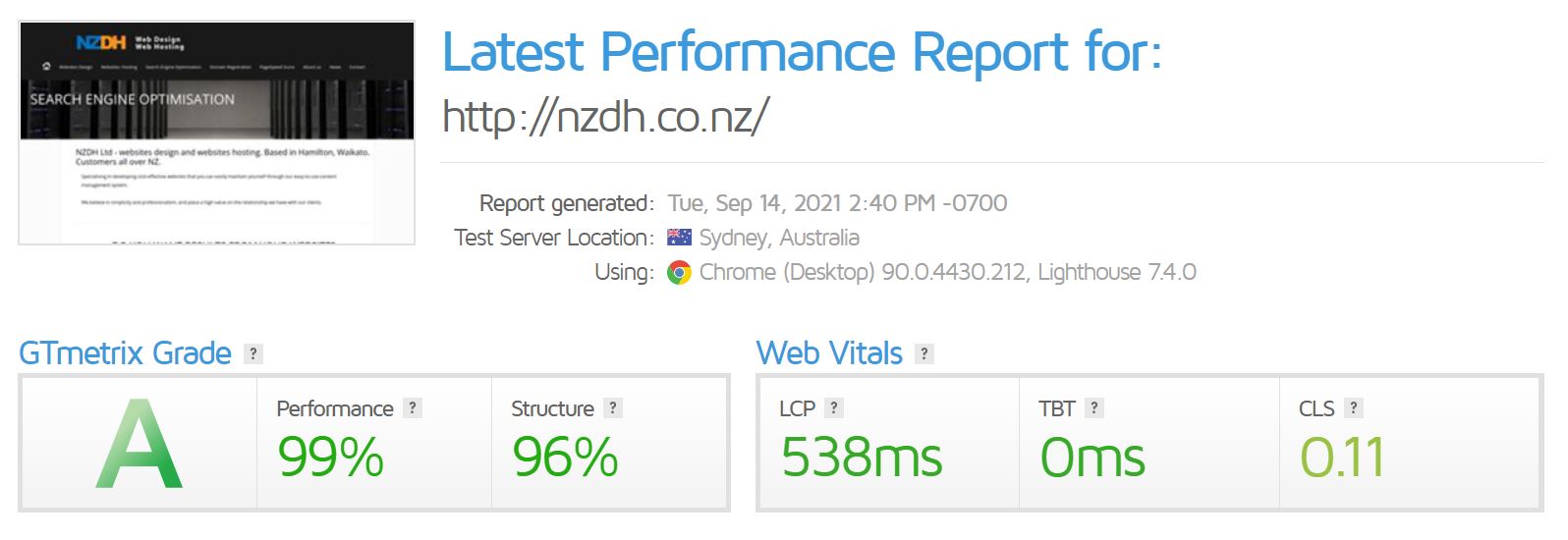Web Site Speed

Website speed is a crucial factor for search engine optimization (SEO) as it greatly impacts user experience and search engine rankings. A fast-loading website can improve engagement and lower bounce rates, while a slow-loading website can negatively impact the user experience and lead to a high bounce rate.
Search engines prefer websites that load quickly, and website speed is a ranking factor for both Google and other search engines. Google has even gone as far as to say that site speed is a "key driver of [their] search engine results" and that "faster sites create happy users." When it comes to website speed, every second counts.
A delay of just one second can result in a 7% reduction in conversions, and it can also lead to a higher bounce rate, which can negatively impact your search engine rankings.
Website speed can be affected by various factors, including the hosting server, the size of the website, the amount of traffic, and the complexity of the website. It's important to ensure that your website is optimized for fast loading speeds by compressing images, minimizing the use of large files, and using a content delivery network (CDN).
Another important aspect of website speed is mobile-responsiveness. With the increasing number of people using smartphones and tablets to access the internet, it's essential to have a website that is optimized for mobile devices. A mobile-responsive design will ensure that your website is easily readable and navigable on smaller screens, and it also helps to improve the user experience. Google has stated that mobile-first indexing is the new standard for search engine rankings, so it's important to make sure that your website is mobile-friendly.
Caching is another technique that can be used to improve website speed. Caching is the process of storing a copy of a website's pages in the browser's memory so that they can be quickly loaded the next time the user visits the website. This reduces the amount of time required to load the website, which can lead to a faster loading time.
In conclusion, website speed is a crucial factor for SEO, as it greatly impacts user experience and search engine rankings. A fast-loading website can improve engagement and lower bounce rates, while a slow-loading website can negatively impact the user experience and lead to a high bounce rate. It's important to ensure that your website is optimized for fast loading speeds by compressing images, minimizing the use of large files, and using a content delivery network (CDN), and also making sure that your website is mobile-friendly. Working with a professional web design agency such as NZDH can ensure that your website is designed with speed in mind and is optimized for search engines.
You can choose in which system your website must be made. This website runs on our own system and is wizzing fast. With for instance Wordpress the graphics can look nicer but a WP website is much slower. So it is a balance between speed to be high in Google and a professional look.
Website design Process
The website design process typically begins with research and planning, where designers will work with clients to determine their goals, target audience, and other relevant factors. They will then create wireframes and mockups to visualize the website's layout and structure before moving on to the actual design and development process.
A well-designed website should be aesthetically pleasing, easy to navigate, and optimized for both desktop and mobile devices. Good website design can help attract and retain visitors, improve search engine rankings, and ultimately lead to greater online success
The website design process typically begins with research and planning, where designers will work with clients to determine their goals, target audience, and other relevant factors. They will then create wireframes and mockups to visualize the website's layout and structure before moving on to the actual design and development process.
A well-designed website should be aesthetically pleasing, easy to navigate, and optimized for both desktop and mobile devices. Good website design can help attract and retain visitors, improve search engine rankings, and ultimately lead to greater online success


